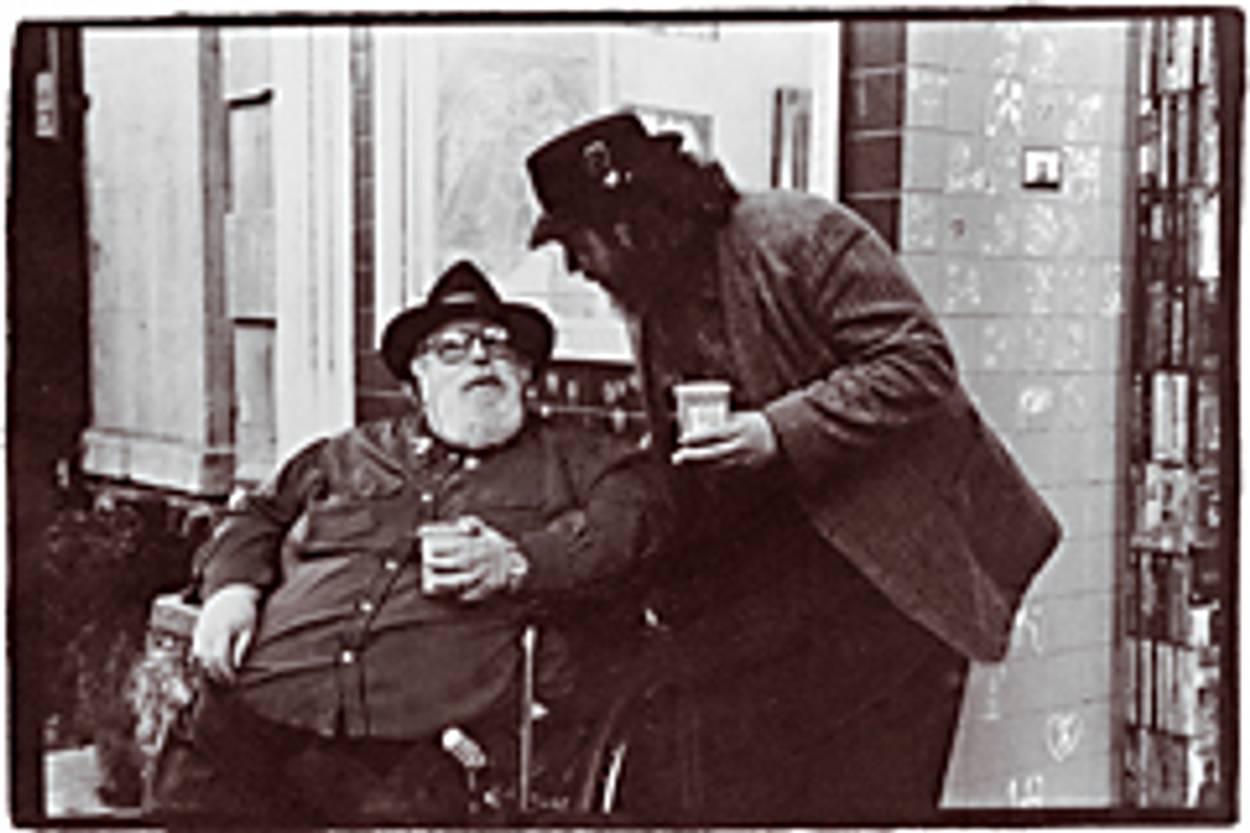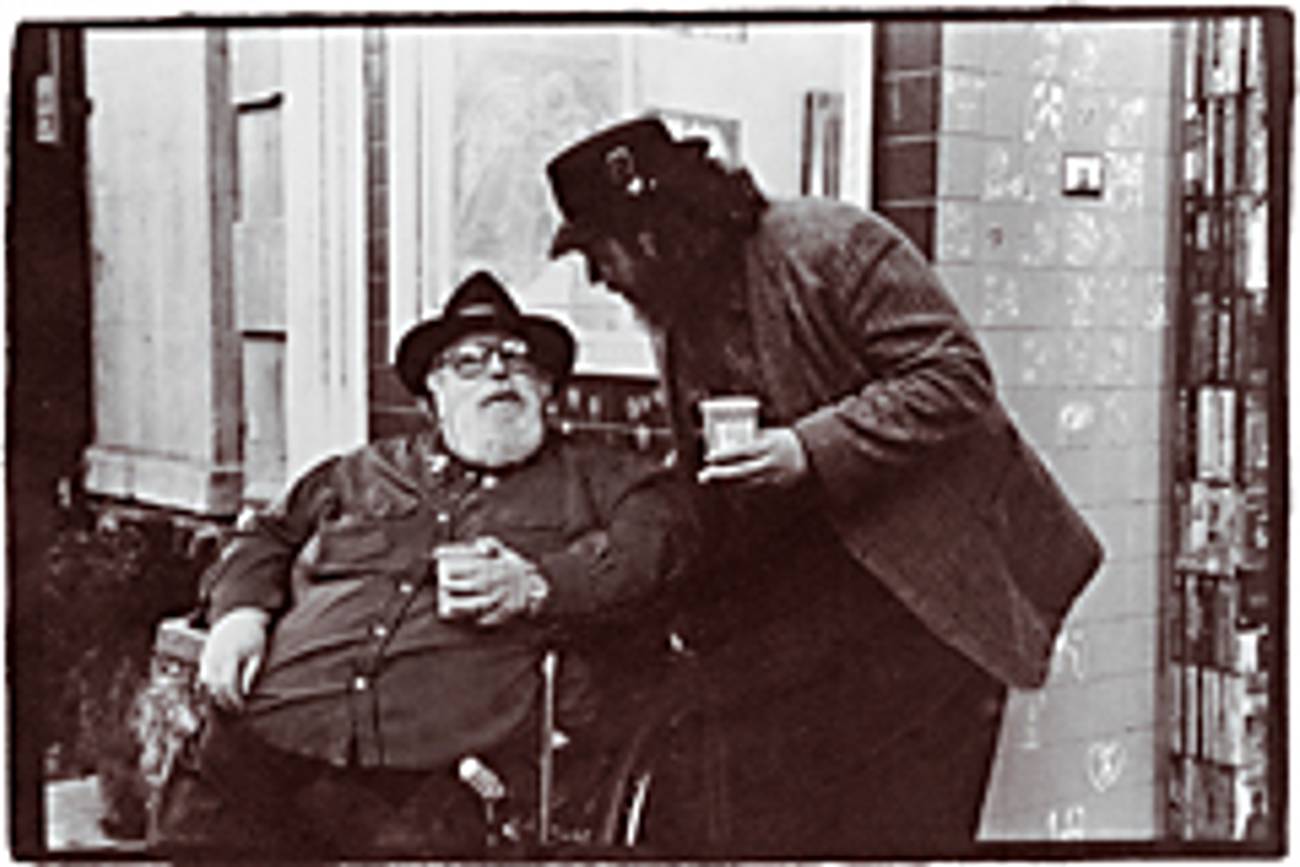Blues Brother
With a little self-invention and a lot of talent, Doc Pomus left his mark on rock ‘n’ roll




Doc Pomus is little known today, except among those who regularly mine liner notes for songwriter credits, but from the late 1950s through the 80s, he brought a certain dark pathos to popular music, writing iconic songs such as “Teenager in Love” for Dion, “Suspicion” for Elvis Presley, and hits for Big Joe Turner, the Drifters, the Beach Boys, and countless others.
Confined to crutches and later a wheelchair by a childhood bout of polio, Doc Pomus began life as Jerome Felder, son of a Brooklyn lawyer. His parents pushed him to become an accountant, but he had other ideas. In Lonely Avenue, a new biography, writer Alex Halberstadt traces Doc’s unlikely rise to fame as a blues singer and influential songwriter.
Nextbook talks to Halberstadt about this man’s remarkable life and work.
* * *
Excerpt from Doc Pomus’s uncompleted memoir, February 21, 1984:
I was never one of those happy cripples who stumbled around smiling and shiny-eyed, trying to get the world to cluck its tongue and shake its head sadly in my direction. They’d never look at me and say, “What a wonderful, courageous fellow.”
I was always too fucking mad and didn’t have a chip, but a great big log on my shoulder, daring the world to get in my way or mess with me. I walked slow and straight and never swung my legs fast and awkwardly like the rest of the gimps who got around with braces and crutches. My main thing was to act and look cool—angry, and cool and sharp. I talked the hip talk of the jazzmen and dressed like Bed-Stuy and Harlem. I was gonna be the first heavy-weight boxing champion on crutches—a one punch knockout killer. Or maybe the first major league pitcher on crutches—firing endless, unhittable strikes. Or maybe I’d be the first famous bandleader waving his baton with one hand and leaning on his crutch with the other. And I was gonna make love to the most beautiful exciting women in the world, and they would all love me passionately and forever. I was going to be the most extraordinary and talented and virile man that ever lived.
And underneath I was a frightened little kid—afraid that my limited physical equipment was not enough to get me any kind of piece of the action out there. I would end up a street beggar hustling quarters, or be just another bed in a cold state institution, or live in a welfare hotel sharing a toilet with some diseased junkie or hooker. Most of the time I shut this out with the help of booze, pot, insanity or blindness; or a combination of any or all of it. But once in a while I would lay in a sleazy hotel room with the soiled bedcovers over my head—too scared to move, sometimes for days and nights—sleepless and trembling. And when it got like that I never knew when it would end, or how it would end, or if it would ever end, but it always did. Now, thirty or forty years later, it happens less and less, and I’ve found corners of myself and the world that I own more than once in a while. And some mornings when I wake up and look around, I even smile deep and feel like it’s good to be here and to be me. But it sure took a long fucking time.
Photos courtesy of Da Capo Press
Your browser does not support the audio element.
Sara Ivry is the host of Vox Tablet, Tablet Magazine’s weekly podcast. Follow her on Twitter @saraivry.
Sara Ivry is the host of Vox Tablet, Tablet Magazine’s weekly podcast. Follow her on Twitter@saraivry.